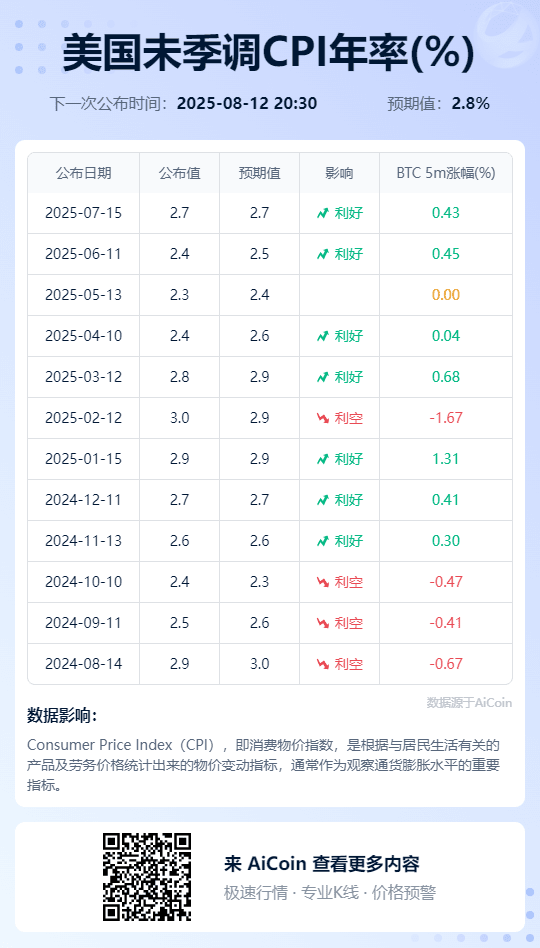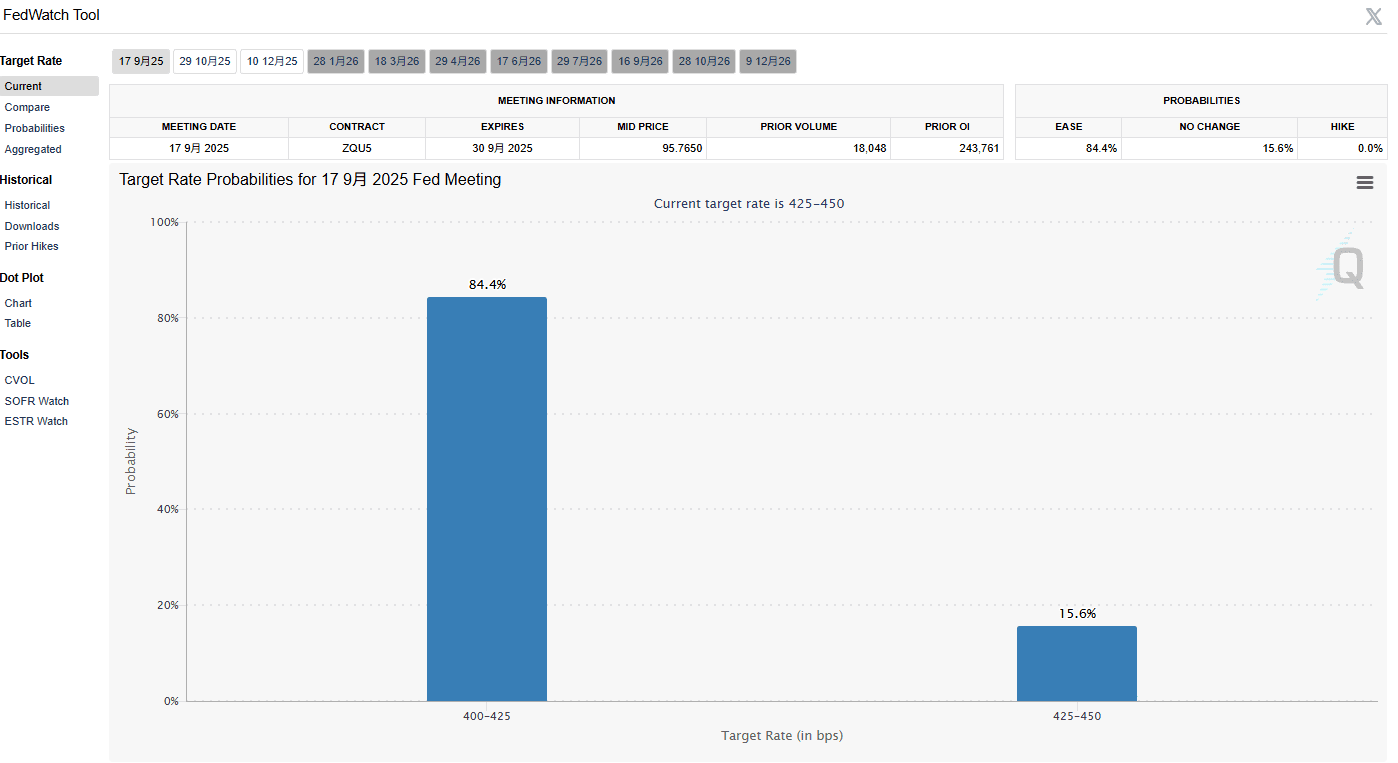Tonight at 20:30 (UTC+8), the U.S. Bureau of Labor Statistics will release the July CPI data. It is expected to record 2.8%, slightly higher than the previous value of 2.7%. If it meets expectations, this will be the second consecutive increase in inflation indicators this year, highlighting the potential upward effect of tariff policies on prices.
Data shows that July's overall CPI is expected to rise 2.8% year-on-year, while core CPI (excluding food and energy) is expected to rise to 3.0% year-on-year. Economists generally believe that concerns about data quality are increasing, but the price pressure on imported goods due to tariffs has begun to show. Compared to June, the rise in core commodity categories (such as imported goods affected by tariffs) has accelerated, driving a slight rebound in overall inflation.

Tariffs are 'biting', putting the Fed in a dilemma
If July's data meets the expected 2.8%, it will reflect the initial impact of the recent tariffs imposed by the Trump administration. These tariffs target imports from multiple countries including China and the EU, covering electronics, steel, and consumer goods, directly raising domestic price levels. Tariff pressures have led to accelerated increases in core commodity prices, pushing CPI up slightly from June's 2.7%. Analysis shows that if the month-on-month core CPI reaches 0.3%, it will further confirm the stubbornness of inflation, and the Fed may be forced to maintain a high interest rate environment. IDNFinancials emphasizes that tariffs are 'starting to bite' and are expected to accelerate inflation in the coming months.
The Fed's stance is crucial. Currently, market pricing shows an 84.4% probability of a rate cut in September, but this relies on a moderate decline in CPI. Morningstar points out that if July's CPI exceeds expectations (such as 2.9%), it will mark the largest increase of the year, forcing the Fed to reassess the pace of rate cuts. TheStreet warns that this data could disrupt the Fed's rate cut path; if inflation accelerates, maintaining high rates will hit risk assets.

How CPI Results Reshape the Crypto Market
If the CPI exceeds expectations (reaching 2.9% or higher), inflationary pressures will highlight the impact of tariffs, and interest rate cut expectations will quickly cool. Reportedly, BTC traders have begun seeking downside protection, concerned that a high CPI will boost the dollar and yields, putting pressure on risk assets. A high CPI will elevate interest rate expectations, reducing the appeal of BTC as 'digital gold', potentially leading to a short-term correction.
If the CPI meets expectations (2.8%), inflation will remain on a moderate downward track. The market will shift to dissect the Fed's subsequent statements word for word, searching for 'dovish signals'. Crypto market volatility will be limited, but a moderate rebound may occur.
If the CPI is lower than expected (2.7% or lower), expectations for a rate cut in September will heat up significantly, and the crypto market may see a frenzy. CoinDesk reports that traders have bet on BTC reaching $135,000 and ETH reaching $4,800.
Concerns and Opportunities in the Crypto Market
The crypto market's sensitivity to CPI stems from its close link to macro liquidity. Reuters points out that if core CPI reaches 3%, it will boost the dollar and hit assets like BTC.
Tariff factors exacerbate uncertainty. Trump's tariffs have driven up prices, and the July CPI may show broader inflationary pressures.
Recommendation: Volatility is a double-edged sword. High data may delay the Fed's interest rate cuts, leading to a decline in BTC; low data could drive a rebound.
This article is for informational sharing only and does not constitute any investment advice to anyone.
Join our community to discuss this event
Official Telegram Community: t.me/aicoincn
Chat Room: Wealth Group



